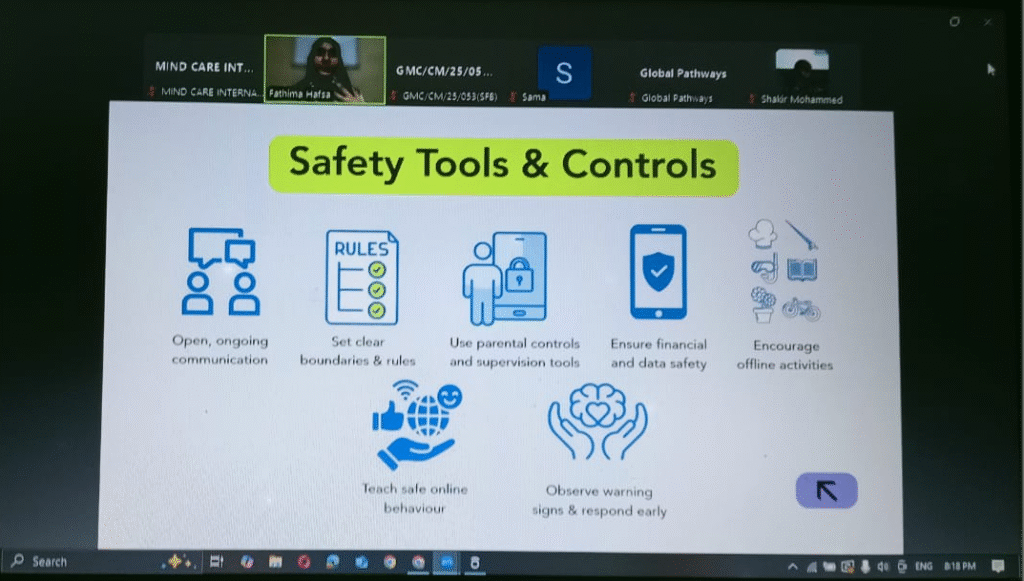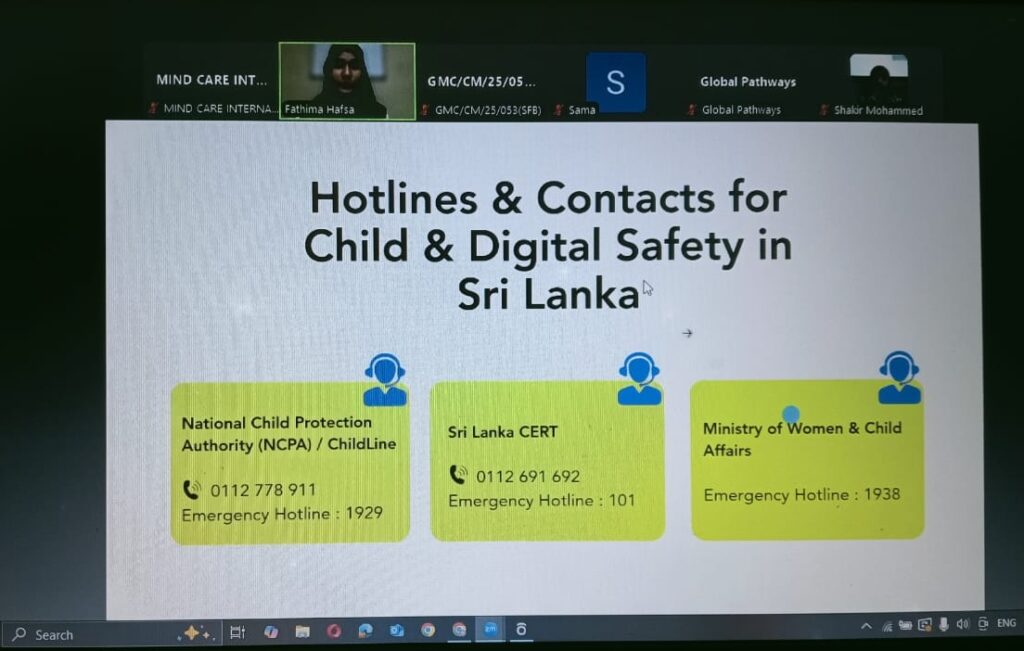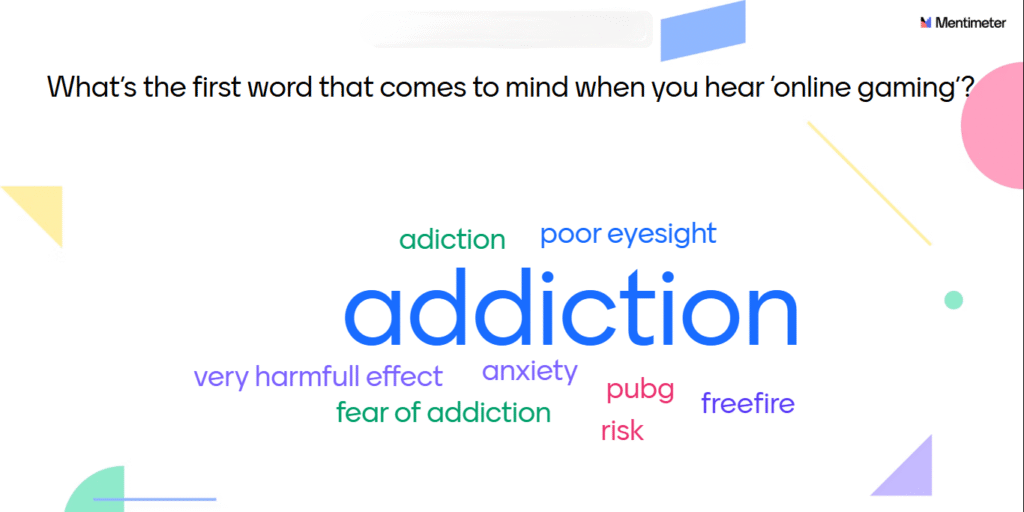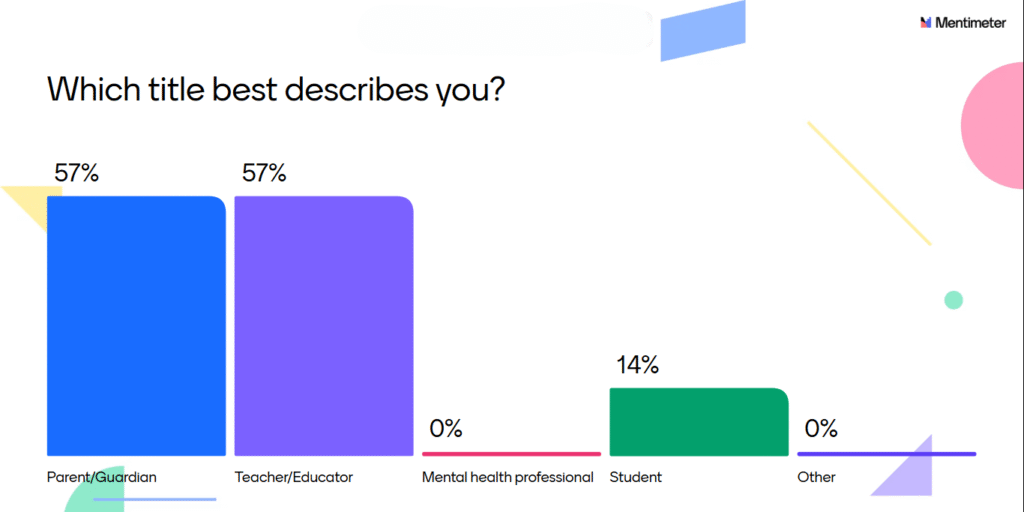Nuha Ameen, Member of IFDC Steering Committee / Fathima Hafsa Haniffa, Secretary of IFDC Steering Committee
The International Foundation for Digital Child (IFDC) recently partnered with Mind Care International – Sri Lanka and Global Pathways to host an insightful webinar on “Online Gaming and the Digital Safety of Children in Sri Lanka.”
With gaming now a major part of childhood entertainment, the session aimed to raise awareness about the rapidly evolving gaming landscape and its impact on young players. It also offered practical guidance for parents, educators, students, and the wider community to engage safely, responsibly, and in a balanced manner in online environments.
The session was organized by Mind Care International – Sri Lanka, a non-profit organization dedicated to mental health and psychosocial well-being. Zeenathun Nuha Ameen, founder of Mind Care International and a valued member of the IFDC network, served as the event organizer. Representing IFDC, Fathima Hafsa Haniffa led the session, which explored how online gaming influences children’s behavior, mindset, and social interactions in today’s digital world. The webinar also provided an open space for parents, educators, and young people to reflect on both the benefits and challenges of gaming.
Key points discussed included the types of online games children commonly play, why gaming appeals to them, and the potential psychological and behavioral effects of exposure to violence-themed content. One key observation was that a significant number of children, particularly boys, are drawn to shooting and violence-themed games. This raised concerns about how such content might shape their understanding of conflict, problem-solving, attitudes, behavior, and empathy in real life.
Beyond identifying risks, the session also highlighted the positive aspects of gaming, such as creativity, problem-solving, teamwork, and digital literacy, when gaming is approached in moderation and with proper guidance. Several engaging and educational games were also introduced as examples of how gaming can be integrated into classroom learning to support critical thinking and creativity. These examples encouraged educators to see gaming as a potential tool for engagement and skill-building when guided effectively.
The discussion further addressed sensitive but crucial topics such as cyberbullying and child exploitation through online platforms, emphasizing the importance of early detection, open communication, and building trust between children and caregivers. Participants explored how awareness and proactive education can help prevent such harms and create safer online environments.
The webinar also introduced practical safety tools, parental controls, and digital literacy resources that parents and educators can use to guide children toward healthy digital habits. In addition, the national child protection support system in Sri Lanka was discussed, including key organizations and contact information that empower parents to respond appropriately and legally when faced with digital safety challenges. Participants were encouraged to view digital safety not merely as a set of restrictions but as an opportunity to nurture responsibility, empathy, and awareness in children as they navigate online spaces.
“Small, consistent conversations and guidance at home or in classrooms can make a real difference in shaping children’s online habits,” Hafsa noted during the discussion.
Through initiatives like this, IFDC continues to strengthen its mission of creating safer digital environments for young people. By working with experts, educators, and families, we aim to foster a culture where digital competence and mental well-being go hand in hand, ensuring that technology serves as a tool for growth, learning, and connection.
IFDC expresses sincere appreciation to Mind Care International – Sri Lanka and Global Pathways for their partnership in organizing this meaningful awareness initiative. The collaboration reflects a shared vision of strengthening digital literacy, online safety, and well-being among children and families in Sri Lanka and around the globe.



